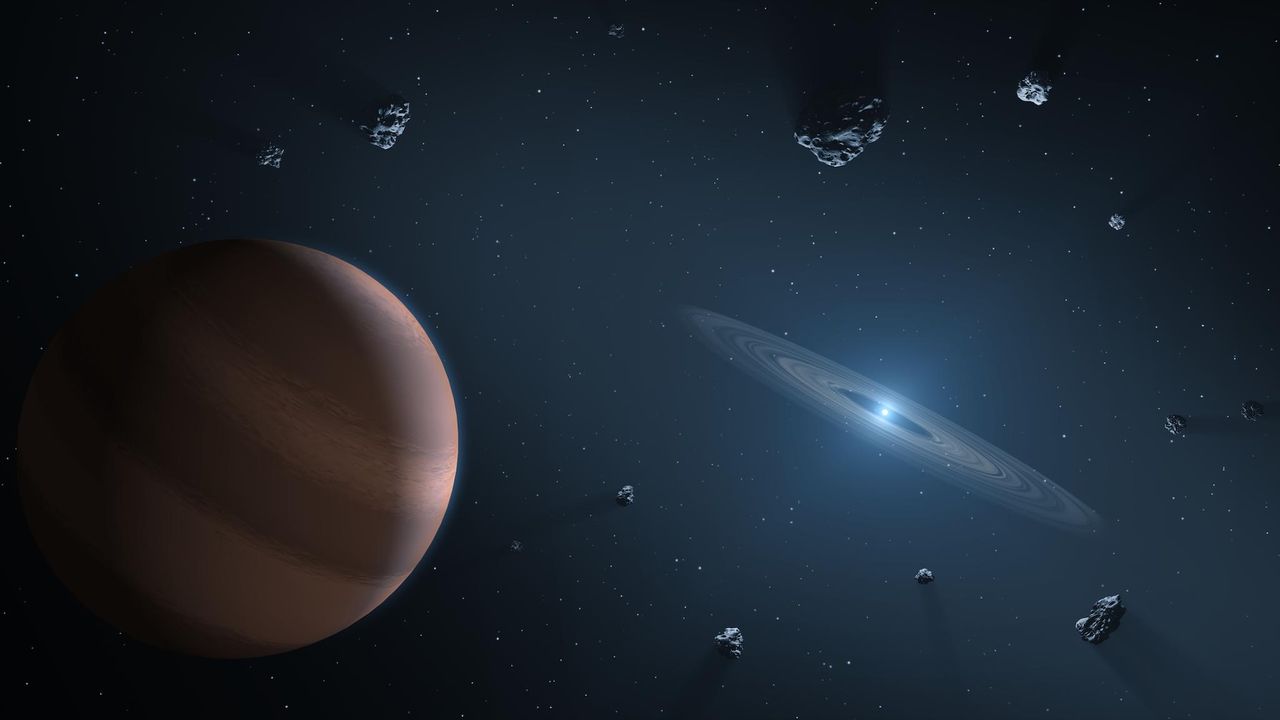
The planets around white dwarf stars might provide long-term homes for alien life, but they suffer from a fatal overheating problem. Who’s going to rescue them? According to new research, it’s none other than Albert Einstein.
White dwarfs are the compact remnants of dead sun-like stars. They litter the universe, with the Milky Way alone home to hundreds of millions of them. And because they can stay warm for hundreds of billions of years, they are a very intriguing place to search for life.
However, research had suggested that life would probably have a tough time on a planet around a white dwarf. The habitable zone — the region where temperatures are just right to support liquid water on a planetary surface — around white dwarfs spans somewhere from a tenth to a hundredth the distance between Earth and the sun. This is fine, if a bit uncomfortable, but the problem comes when the planet is not alone.
If there’s another planet in the system even somewhat nearby, its weak-but-persistent gravitational influence will pull the inner world into a highly elliptical orbit. Once there, it will stretch and squeeze from tidal heating. This happens in the icy moons of the outer solar system, which liquefies their interiors. But for a planet around a white dwarf, this same process will heat it up so much that it becomes totally uninhabitable.
Previous research had found that this was very easy to do. Even a small deviation from a perfectly circular orbit would be enough to doom a planet.
But that research only considered Newtonian gravity, which is the simple formulation of gravity that explains everything from the motion of projectiles on the Earth to the orbits of most of the planets around the sun. But we know that Newtonian gravity is not always accurate, especially for close-in orbits around dense stars. In our own solar system, Mercury’s orbit slowly rotates, or precesses, around the sun, in a way that Newtonian gravity cannot explain. A major accomplishment of Einstein’s theory of general relativity, which views gravity as the result of deformations in spacetime, was that it could explain Mercury’s orbit.
In a new paper published Sept. 30 to the preprint database arXiv, researchers performed a more careful analysis of planets orbiting white dwarf stars, accounting for the effects of general relativity. While previous researchers knew that general relativity was more accurate, it’s a much more difficult theory to use, and usually doesn’t produce significant differences in planetary orbit calculations.
But the researchers found that a more accurate treatment revealed a much wider window of habitability than previously thought. This is because the precession of the inner planet’s orbit “protects” it from being pulled into more elliptical paths, which, in turn, prevents runaway tidal heating, the researchers explained. (The paper has not been peer-reviewed yet.)
There are some cases where tidal heating is unavoidable, like if a companion planet is too big or too close. But for a wide variety of combinations, the inner planet remains in its orbit just fine.
And if an alien civilization ever does develop on a planet like that, these aliens might discover general relativity on their own — and if they do, they can thank that physics for their very existence.
